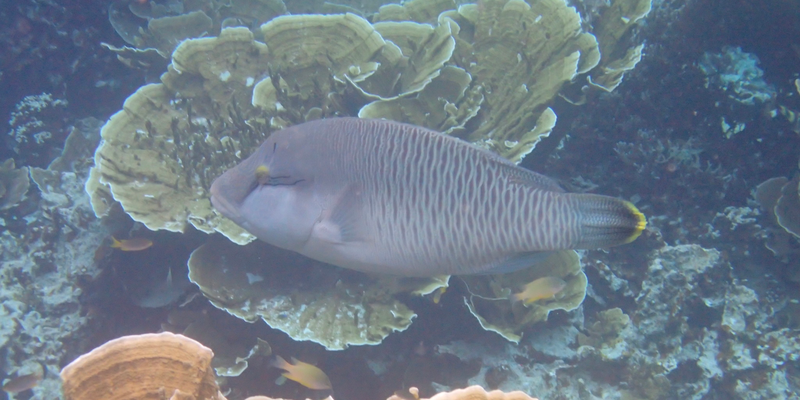Data use
Global decline in capacity of coral reefs to provide ecosystem services
Published 6/15/2023
Study of 50 years of reef surveys finds coral coverage halved, which coupled with steep declines in catch numbers, suggests severe losses in reef-associated species abundance

Millions of people worldwide rely on coral reefs and the ecosystem services they provide such as food, livelihoods and buffering against extreme climate events. For coastal Indigenous peoples in small-island developing states, seafood consumption is 15 times higher than non-Indigenous populations, constituting up to 90 per cent of dietary animal protein in some Pacific nations.
This study examined how coral coverage, reef-associated biodiversity and fisheries changed globally from 1957 to 2007. Analysing surveys of 3,500 reefs in 87 countries, researchers estimated a decline in coral coverage of ~5 per cent per decade and a total of 50 per cent decline from the 1957 baseline.
Using occurrences of more than 40,000 reef-associated macroalgae, macroinvertebrates and fish species mediated by OBIS, GBIF and other sources, the authors calculated species richness by exclusive economic zone (EEZ). These showed the greatest coral-associated biodiversity in Pacific countries and territories. Applying a regression model they further revealed a positive relationship between estimated reef area and the species richness among 94 EEZs.
The countries with the highest per-capita consumption of coral fish species among Indigenous peoples were Palau, Micronesia and Kiribati. Global reef-associated catches increased from 1950 until peaking in 2002 after which they declined. Global catch per unit effort (CPUE)—an indirect measure of species abundance—peaked in the 1970s and then dropped significantly. In the EEZs of many countries, the decline over 50 years was close to 100 per cent.